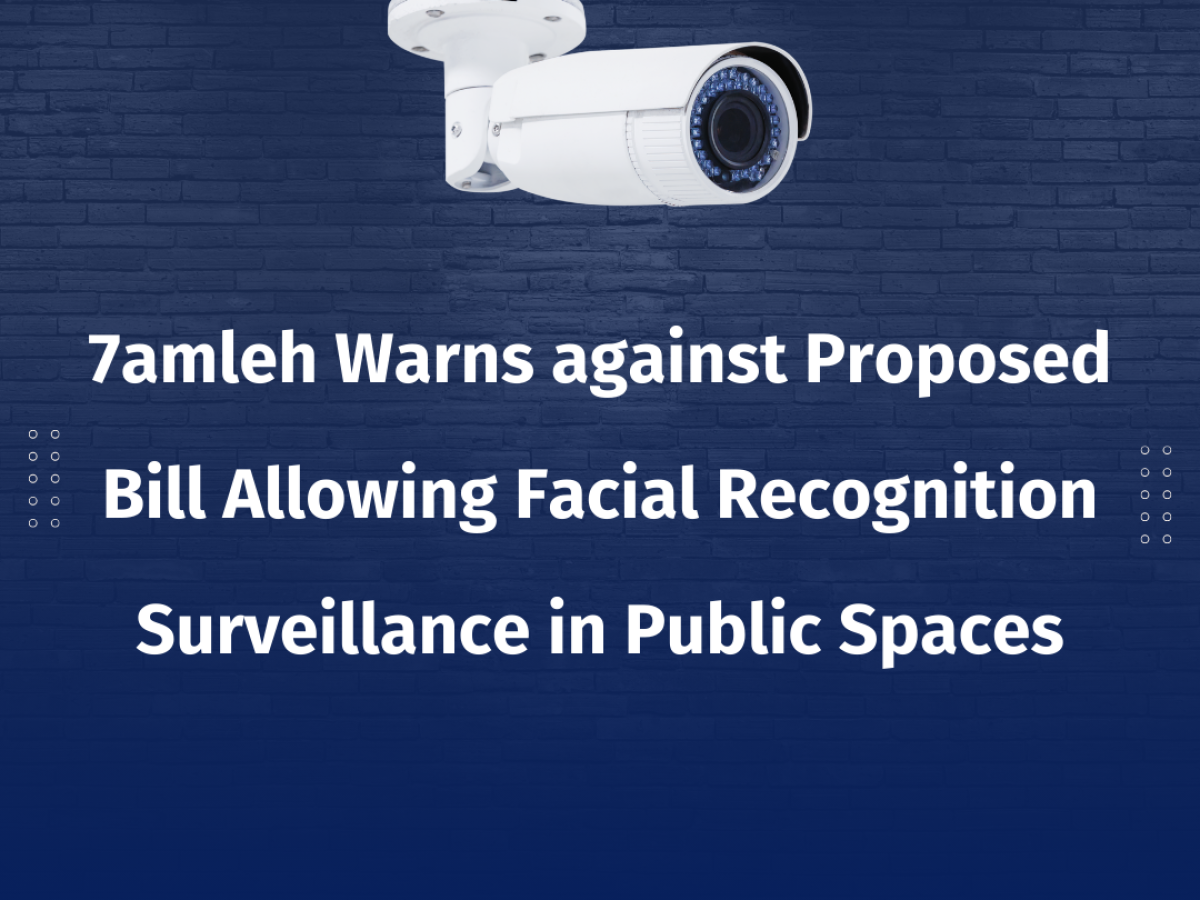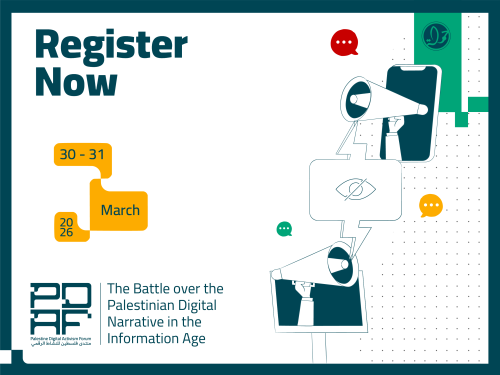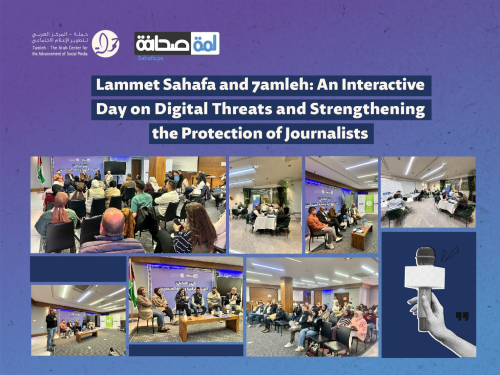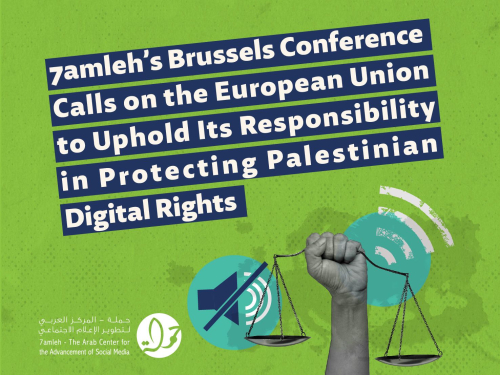
7amleh - The Arab Center for the Advancement of Social Media, raises the alarm over the imminent approval of a bill that grants the Israeli police the power to deploy facial recognition cameras in public spaces. 7amleh is concerned about the consequences, and views this as a grave encroachment on digital rights, the right to privacy, and the right to peaceful assembly. This development is reminiscent of the multifaceted surveillance regime that operates around the clock, nicknamed "Big Brother." This biometric surveillance regime eradicates all semblance of privacy for citizens, and more intensely so for Palestinian citizens of Israel. The proposed bill explicitly focuses on Palestinian towns and cities within Israel, as articulated by its main sponsors, National Security Minister Itamar Ben Gvir and Justice Minister Yariv Levin.
The bill, approved by the Knesset’s Ministerial Committee for Legislation last Monday, would allow the Israeli police to install facial recognition technology-equipped cameras and collect biometric data from individuals in public spaces within towns and cities across the country.
Under this legislation, the operation of facial recognition cameras could be initiated by a "police officer of unidentified rank”. The procedure is being justified under the pretext of combating organized crime within Palestinian communities in Israel.
7amleh would like to emphasize that, if passed, this bill will legalize intrusive surveillance in public spaces, effectively transforming these cameras into tools of intimidation, and prevent citizens from exercising their rights. It also paves the way for the exploitation of personal information for the purpose of blackmailing citizens and violating their privacy. Additionally, the collected biometric information may be used to suppress protests, and impede social and political activities, especially within Palestinian communities disproportionately targeted by the bill.
The dangers of this law are exacerbated by the absence of any explicitly stated supervisory oversight. It would grant Israeli police broad powers to access facial recognition cameras and collect information without supervisory scrutiny or judicial warrants. A police officer of unidentified rank can activate these cameras at their discretion, opening the door to widespread violations that may result in arbitrary arrests, interrogations, and detention of citizens.
This new law complements the extensive surveillance system that allows the sharing of information without adhering to privacy standards in accordance with international human rights treaties and agreements. Access to the information would be granted, but not limited to, Israeli authorities such as the military, police, intelligence agencies, and other agencies based on the directive of Israel’s National Security Minister. This apparatus also encompasses the "Hawk-Eye" system, which monitors vehicle's movements within Israel and tracks their location data, as well as the "Tool" system, which surveils mobile phones and stores their information and location.
7amleh stresses that this law poses a significant threat to individuals' fundamental rights, including their digital rights, particularly regarding their right to privacy, peaceful assembly, free expression, and their freedom of movement. There is a legitimate concern that this law may be used to disproportionately target Palestinian citizens of Israel in order to suppress their basic freedoms and increase restrictions on their social and political activities.
In light of these developments, 7amleh underscores the need for digital rights and human rights organizations in the region and globally to take immediate action against Israeli violations of Palestinians’ digital rights.
Related Articles
Subscribe to Our Email Alerts
And stay updated with our latest activities, news, and publications!








